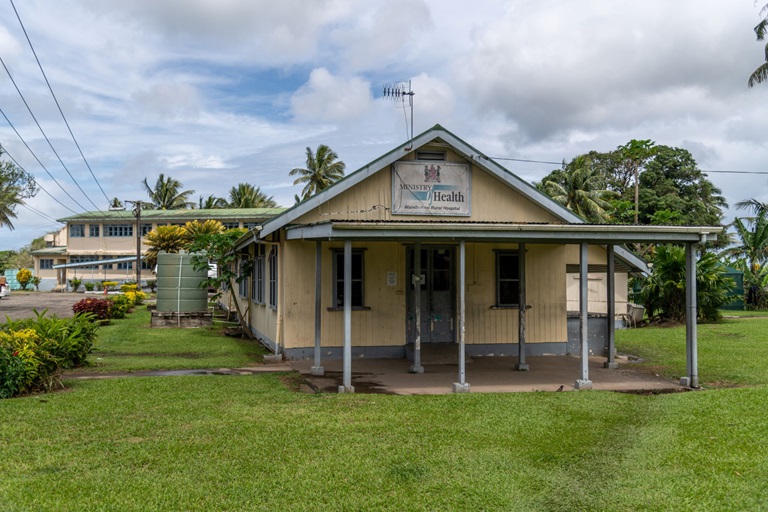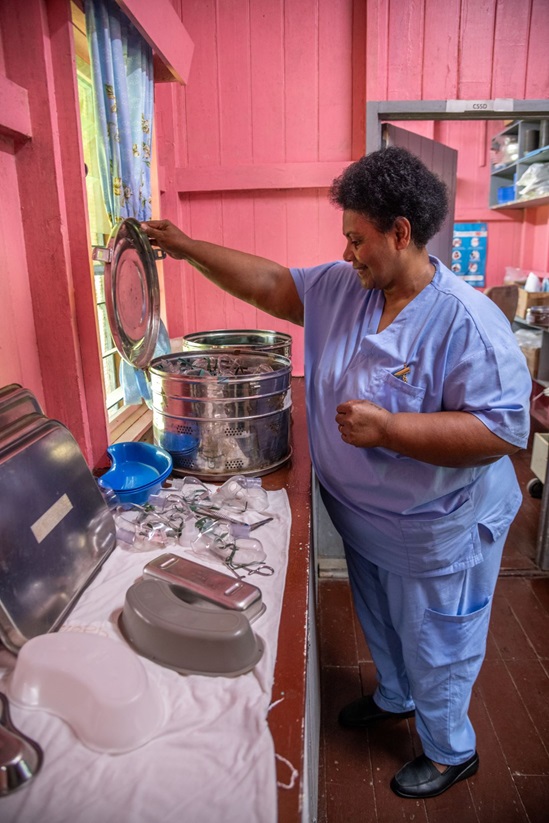As a registered nurse in Fiji who cares for patients with respiratory conditions, Udila Tawake knows all too well the dangers created by the lack of a consistent and reliable supply of medicinal oxygen.
She encounters many patients who need oxygen therapy. Hypoxemia, which is a low level of oxygen in the blood, “is an everyday thing for a nurse,” says Ms Tawake, who works on Viti Levu Island, the largest island in Fiji and home to its capital Suva.
The situation is even worse for many health-care centres in more remote, hard-to-reach areas. Delivering medicinal oxygen to these facilities is complicated, and the equipment required often cannot be used during of power outages, which are common in many areas.
“These challenges were there before COVID-19,” explains Ms Tawake. “So when COVID-19 came, these challenges were seen all over, not just in Fiji, all over the world.”
An innovative approach to transforming oxygen access
To address this issue, Fiji has embarked on an innovative journey to revolutionize access to oxygen. The Ministry of Health, in collaboration with Cure Kids, introduced the Oxygen Project, which distributes oxygen concentrators to health-care facilities across Fiji.
These are compact, portable devices that filter ambient air and concentrate oxygen, ensuring the delivery of pure, medicinal-grade oxygen to patients. This eliminates the challenges of transporting bulky oxygen tanks to and from remote health centres.

Portrait of the Wainobokasi Rural Hospital near Nausori, Fiji. Photo credit: WHO/Tom Vierus
A sustainable approach for long-term impact
The Oxygen Project is also installing solar power systems in health facilities, so that the concentrators can continue to work without conventional power sources. Perhaps most significantly, the project trains local biomedical engineers, solar engineers and nurses so that they have the knowledge and skills to operate, maintain, monitor and repair the panels and concentrators.
For Ms Tawake, who serves as the National Coordinator of the Oxygen Project, the training aspect is crucial. “It’s not like putting equipment there and leaving it,” she explains. “When the oxygen concentrator breaks down, we have a person there that can repair it.”
This approach guarantees the sustainability of the oxygen supply. In the past, Ms Tawake has seen projects that provided new equipment that ended up deteriorating and being abandoned because of a lack of maintenance expertise. “I have been working in the Ministry for a long time,” she says. “I have seen projects that come in, last for a few months, and left. And then nobody is doing the monitoring, and there is no sustainability.”
The Oxygen Project represents a long-term, collaborative solution that fills Ms Tawake with hope: “My dream is for everybody to work together, so that everything we do is sustainable and has a positive outcome for the people of Fiji.”

Veniana Rakaucoka, one of the nurses in the Wainobokasi Rural Hospital, prepares oxygen masks. Photo credit: WHO/Tom Vierus
Supporting innovation for health in the Western Pacific Region
The Oxygen Project in Fiji is a prime example of the transformative potential of innovation in health care.
The World Health Organization in the Western Pacific Region has identified innovation as one of the keys to addressing health challenges in the Region. In consultation with Member States, stakeholders, partners and experts, the draft Western Pacific Regional Innovation Strategy was developed. The Strategy will be discussed at the seventy-fourth session of the World Health Organization (WHO) Regional Committee for the Western Pacific this month.
The Strategy aims to support governments to harness the potential of health innovations for shaping a healthier future for the people in the Region. By placing health innovation at the forefront of policy agendas, fostering collaboration, allocating resources and establishing robust measurement systems, Member States can develop initiatives such as the Oxygen Project that represent long-term, sustainable benefits to health systems and improve the well-being of many.
WHO is committed to supporting Member States as they learn, plan and build innovative solutions to address both the health challenges of today and those of the future.
Read more about the draft Strategy.




